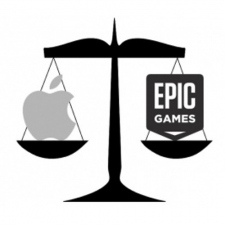The U.S. Supreme Court have declined to hear a fresh challenge by Apple which the company hoped would bring into question a previous ruling requiring them to make major changes to Apple App Store policy. This means that the walled garden to their App Store is now effectively open to companies seeking direct access to their users and fans.
Similarly at the same session the justices declined the appeal from Epic – maker of Fortnite and long-running, on-going Apple antagonist – stating that Apple’s App Store policies were, in fact, illegal. Today’s finding rules that Apple did not violate federal antitrust laws and as such issues around Apple being forced to welcome alternative app stores remain up in the air.
A victory for both sides then? Not exactly.
Epic’s motion to couch Apple’s actions as being outside the law and bring on a slew of new App Stores may have failed, but the requirement that they have to open up and allow Apps within their App Store to offer transaction options from the web (essentially cutting them out of the famous 30% tax they’ve earned since the App Store’s introduction in 2008) remains firmly in place.
In short it’s a victory for Epic, albeit one that isn’t the massively destructive crushed-glass-in-the-custard pie that they were hoping for.
And it seems that the fallout has begun already. With seemingly an end in sight to Apple’s App Store in app purchase money-tap Apple’s stock fell more than 2% in early trading on Tuesday.
Step up Mr Sweeney
And – needless to say – top Apple irritant, Epic CEO Tim Sweeney couldn’t wait to claim victory (again) and spell it out. “Now the District Court’s injunction against Apple’s anti-steering rule is in effect, and developers can include in their apps “buttons, external links, or other calls to action that direct customers to purchasing mechanisms, in addition to IAP,” he wrote on X (formerly Twitter).
“As of today, developers can begin exercising their court-established right to tell US customers about better prices on the web. These awful Apple-mandated confusion screens are over and done forever,” he continued.
Though…
“The Supreme Court denied both sides’ appeals of the Epic v. Apple antitrust case. The court battle to open iOS to competing stores and payments is lost in the United States. A sad outcome for all developers.”
But!…
“The fight goes on. Regulators are taking action and policymakers around the world are passing new laws to end Apple’s illegal and anticompetitive app store practices. The European Union’s Digital Markets Act goes into effect March 7.”
Apple – of course – have remained stoically silent so far but the repercussions and inevitable loss of revenue that’s facing them will be a grave concern, even if Epic’s one-company crusade to completely destroy their Store and make them pay has failed.

